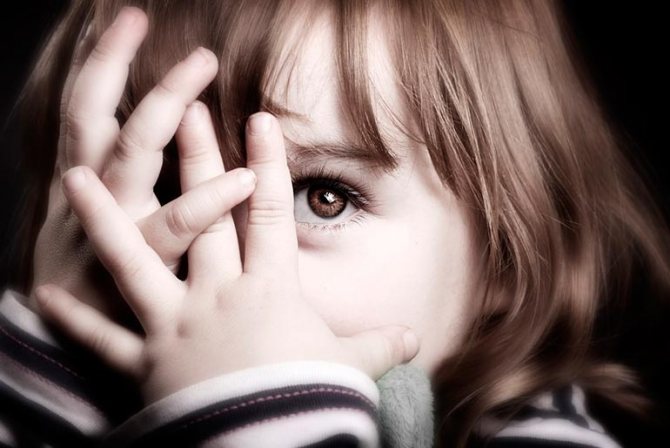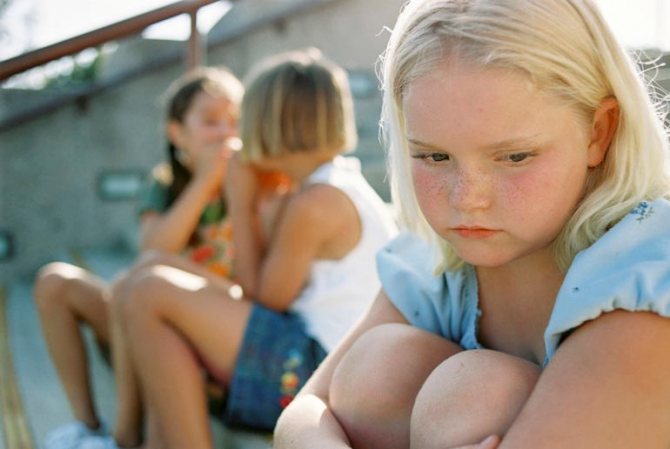For the successful development of a child’s psyche and his abilities, it is necessary that the child feels confident, is not afraid to express himself and his capabilities, strives for the best, and is open and honest. Insecure adults most often grow up from insecure children.
Self-doubt is a low idea of your own capabilities and abilities.
Self-confidence is an important quality for a child, which indicates that he values himself, is responsible for his actions, and is ready to cope with life’s problems. Developing confidence in a child needs to start at an early age. This personality trait continues to develop throughout life. Any child can become confident, regardless of gender and age.
Notes of uncertainty cannot be immediately seen in a child; parents are not always able to recognize a situation when the child already needs help.
People who constantly experience indecision, doubt themselves and their capabilities, experience significant difficulties in life, it is more difficult for them to achieve significant success, they are constantly trying to gain approval from others, and cannot understand what they want.
This is why it is so important to eradicate any incipient feelings of insecurity in your child as soon as possible.
How to tell if your child is confident
Observe and think about how your child behaves at home, in kindergarten or school, with his peers.
If a child speaks quietly, even if the situation does not require it, often bites his nails, adjusts his clothes for no apparent reason, or licks his lips, then these are minor signs of indecision, uncertainty and complexes.
Here are some other signs of insecure behavior:
- the child looks away when talking to a person;
- tries to avoid the adult’s answer;
- excessively distrustful, irritated in the presence of other people;
- often gets angry with strangers;
- afraid of not being able to cope with an adult’s instructions and does not want to take responsibility;
- is afraid of difficulties and always chooses easier things;
- panics before doing new things;
- has a number of fears and even phobias;
- is embarrassed to meet and communicate with new people;
- has no opinion of his own;
- writes and draws very finely, pressing lightly on the pencil;
- sometimes shows aggression and behaves badly for no reason;
- slouches.
If your child exhibits at least some of the listed signs, then you should start working on your own mistakes in upbringing and be sure to develop self-confidence in your child.
Often, insecure, shy children can show irritation towards pets and loved ones. Having grown up, such children understand that they have not achieved anything in life, they show anger towards others, blaming them for all the troubles.
Svetlana Voitenko, child psychologist: “Self-confidence is a very broad concept. Its development is facilitated by a positive vision of the world, self-esteem, stable self-esteem, faith in one’s capabilities, etc. Self-confidence is formed, first of all, by parents and proper home education. Of course, relationships with peers, adults, and the school atmosphere in general are also important. If a child is having problems at school, it is worth talking to the teacher or school psychologist.”
If a child has grown up insecure, he may have the following traits:
- isolation;
- unsociability;
- timidity;
- blind imitation of a confident child;
- difficulty in establishing contact with strangers;
- low self-esteem;
- lethargy, stubbornness.
Where does uncertainty come from?
The most common cause of childhood insecurity is the upbringing and treatment of the child in the family and his immediate environment. Even the most loving parents sometimes make mistakes, believing that they are acting in the best interests of the child. Let's look at the main factors influencing children's determination and confidence.

Parents are insecure people themselves.
The way the child’s parents look at the world and various situations also determines his own worldview and behavior. If a child is endlessly told: “It’s better not to try, in case you lose”, “And if it doesn’t work out, what then”, “Don’t bother, otherwise it could be worse” - then in the child’s understanding such standards of thinking become commonplace. He decides that for his own safety, in order not to look stupid, to avoid losses and punishments, it is better not to take on any business, to avoid responsibility.
Indecisiveness is not inherited, but it can be deeply embedded in the subconscious. The child, projecting the behavior and words of his parents, lowers his self-esteem and considers inaction the best choice.
Read also: how to increase your child’s self-esteem
Therefore, even if you are naturally shy and indecisive people, try not to show these qualities of yours, do not tell your child that he may fail because he is not strong and smart enough. On the contrary, try to generate initiative in the child, a desire for new things.
If parents are too confident in themselves, consider themselves the smartest and most skillful, and do not tolerate having their actions challenged, then the child grows up unable to make independent decisions.
It has been noticed that first-born children in a family often suffer from low self-esteem and have more problems communicating with others than their younger brothers and sisters. The fact is that when the first child appears in the house, parents experience a lot of worries about him. Adults' anxiety about how well they cope with their parenting responsibilities is passed on to the child.
Constant criticism, comparison, punishment.
If you constantly criticize a child, ignore his achievements instead of praising him, condemn his choice, do not appreciate his friends, forbid a lot, demand perfect execution of everything the child undertakes, you will inevitably cultivate in him a feeling of insecurity, fear of taking on any significant undertaking.
By screaming and often punishing your child, you contribute to his isolation, alienation, and kill self-confidence and good relationships between people. Frequent fear, coupled with regular intimidation, has the most negative effect on the child’s psyche. By comparing him with others, assuring him that there are stronger, smarter, more beautiful people, you reduce his self-esteem. A child can easily become isolated in his worries and fears of being a failure, and as a result, stop developing normally as a person, and as an adult he cannot arrange his personal life or build a career, still considering himself unworthy and incapable.
Realization of your unfulfilled dreams, plans and desires.
Let’s say my mother wanted to become a famous musician all her life, but because of her first love, she abandoned music school and forever parted with her dream, and later with her first love. Now the mother, without realizing it, decided that her child simply needed a musical education, and sent the baby to learn to play, for example, the violin, without taking into account the child’s lack of desire and aspiration. As a child, dad was bullied by strong, healthy guys, and now he insists on boxing and martial arts for his child.
When choosing a child’s path through life, think about whether you are projecting your own desires, whether you are taking into account the child’s abilities, inclinations and aspirations.
Failures in social life.
Once in a children's group, first in kindergarten, then in school, the child learns to recognize himself as a person, an individual, and looks for ways to interact with peers. Therefore, failures and mistakes in communication, falling into the “wrong company”, mockery and ridicule of enemies, non-reciprocal love, etc. are greatly exaggerated by children, causing a lot of worries. If the family does not help the child overcome their problems in time, they can provoke the development of self-doubt.

Not meeting standards.
The world around us imposes a lot of stereotypes and standards on us. The sensitive child's psyche is very susceptible to criticism about appearance, nationality, and religion. The desire to become like everyone else erases individuality, and the desire to endlessly change one’s appearance, to hide far-fetched figure flaws, causes a lot of complexes. Without the support of loved ones, these complexes will only grow.
Under no circumstances should you insult or humiliate a child or allow other people to do this. Tell your child more often that you believe in him and love him very much!
How to teach a child to be self-confident: examples of training exercises
Practical exercises cultivate strong-willed qualities, increase the desire to improve oneself, and develop abilities.
Be sure to read:
Why does a child get hysterical in a store: what to do and how to cope?
The specifics of training exercises depend on age:
- Training for preschool age. It consists of pronouncing skills that the baby has not yet mastered. He must understand that he is gradually but constantly acquiring new skills and knowledge. What didn’t work out yesterday can be done without difficulty today. The training increases motivation and specifies aspirations.
- Elementary School. A list of positive qualities of a schoolchild starting with the letters of his name. A piece of paper with a set of ideal qualities is placed in a prominent place so that he can constantly see what opportunities his name has endowed him with.
- Middle school age. Group training. Children stand in a circle and express sincere compliments to each other. Recognition from others inspires and encourages self-improvement.
- Teenagers. You are invited to independently outline your ideal image today and in the future. This will allow you to understand more clearly what to strive for.
Finding the reasons for actions

The technique allows you to better understand yourself, helps you understand the motives of your actions, and teaches you to control your emotions. Understanding the data obtained allows you to change your own perception and become confident.
The child can study independently or in the presence of an adult. The training takes place at the end of the day. All events are listed in writing, including normal daily activities such as breakfast. A reason is written next to each item.
Then they proceed to the main thing - evaluation, comprehension of the motivation of each action.
Actions are often explained as follows:
- need;
- accident;
- habit.
If it is not possible to clearly formulate the reason for the action, they write the phrase “I did it, and I am responsible for the result.” The frequency of such explanations determines the child's level of confidence.
Self-hypnosis
The purpose of the technique is to develop positive emotions, develop incentives, and volitional actions through repeated speaking (preferably out loud) of specially selected phrases.
Get ready for classes, take a comfortable position, and relax.
By constantly repeating certain words, we invade the subconscious and give instructions to strengthen self-confidence.
Phrases begin with the words: “I have the right ...” and then continue:
- win;
- rejoice;
- for independence;
- on individuality;
- to be understood;
- achieve what you want;
- make the wrong decision and be responsible for it.
Be sure to read:
How to properly raise a boy to make him a real man: features and methods
At the end they say “I am confident in myself.”
You can come up with words yourself, depending on your goals and problems.
Arguing with yourself
A method called “Challenging with Yourself” that helps increase confidence is as follows:
- Record character flaws in writing.
- In each paragraph, write compelling arguments that turn the disadvantage into an advantage.
For example, a child perceives slowness as a disadvantage. However, this trait indicates calmness, thoughtfulness in actions and decision-making.
The method is suitable for working with children of primary school age. A child who considers himself boring should be convinced of the opposite: “You are simply reasonable, this wonderful quality will help you avoid many mistakes in life.”
Visualization of success
The purpose of the technique is to strengthen self-confidence and charge with positive emotions. It is necessary to place in a visible place things that indicate achievements, reminiscent of pleasant moments: various certificates, cups, photographs from vacations, with family. Drawings and crafts are hung in the baby's room.
Visualization of success is considered the most powerful tool in achieving any goal.
Recommendations: how to raise a child into a successful adult

- If you want to change anything in your child, start with yourself. Remember, children copy their parents.
- Praise your child for successes and do not scold for failures.
- Tell your child what is useful, not what not to do.
- Make up short suggestion formulas with your child like: “I am the best”, “I am successful”.
- Learn to replace negative thoughts with positive ones. If your child doesn’t know how to sing beautifully, tell him: “But you can draw great!”
- Tell your baby more often how much you love him and that you believe in him.
- Support all your child's endeavors, even if they seem strange to you.
- Try to always be objective in relation to the various actions of your child.











